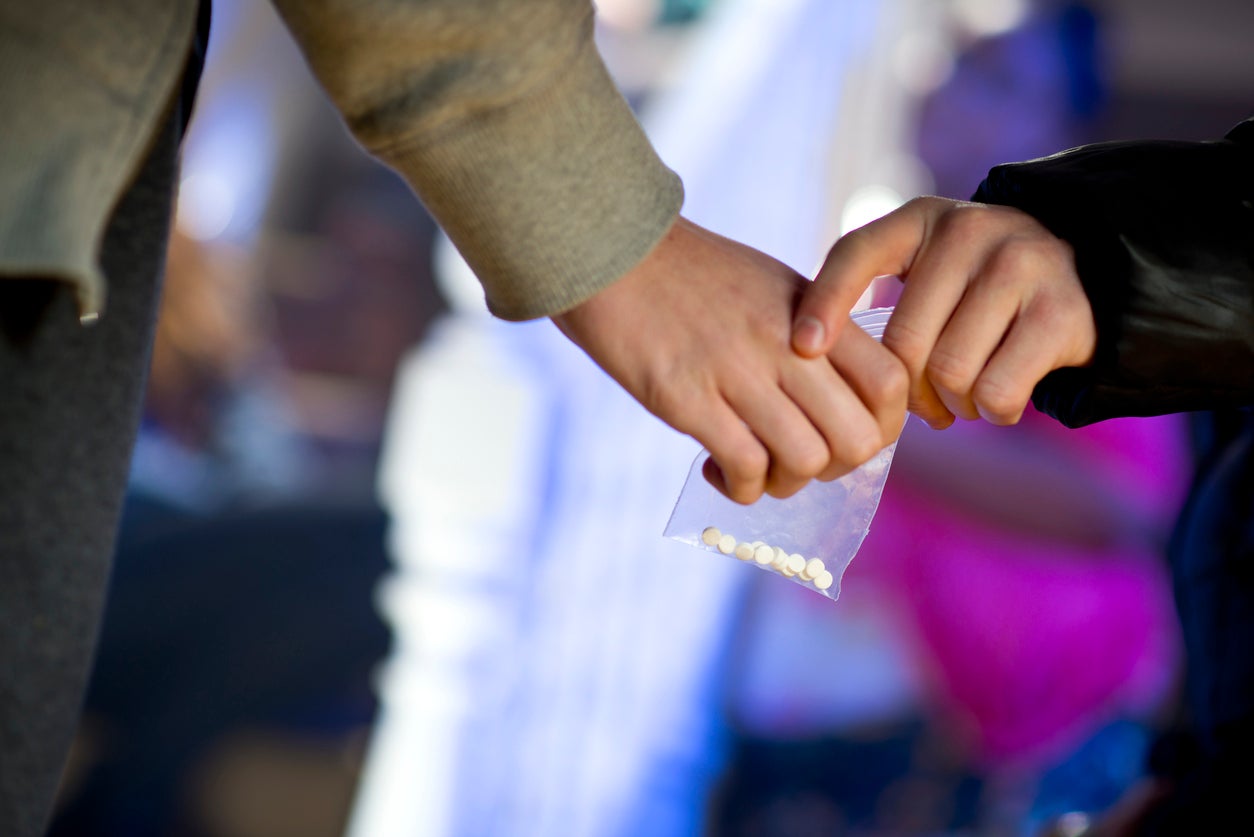One in 10 teens has tried hard drugs such as cocaine and ecstasy by 17, study finds
Nearly a third had used cannabis, according to research

Your support helps us to tell the story
From reproductive rights to climate change to Big Tech, The Independent is on the ground when the story is developing. Whether it's investigating the financials of Elon Musk's pro-Trump PAC or producing our latest documentary, 'The A Word', which shines a light on the American women fighting for reproductive rights, we know how important it is to parse out the facts from the messaging.
At such a critical moment in US history, we need reporters on the ground. Your donation allows us to keep sending journalists to speak to both sides of the story.
The Independent is trusted by Americans across the entire political spectrum. And unlike many other quality news outlets, we choose not to lock Americans out of our reporting and analysis with paywalls. We believe quality journalism should be available to everyone, paid for by those who can afford it.
Your support makes all the difference.One in 10 teenagers has tried hard drugs by the age of 17, according to a new study looking at the behaviours of Generation Z, a cohort of young people born around the year 2000.
Research by University College London's (UCL) Centre for Longitudinal Studies Centre found nearly a third of young people (31 per cent) had tried the Class B drug cannabis.
But 10 per cent had gone on to experiment with harder drugs such as the dissociative substance ketamine, also Class B, and Class A narcotics cocaine and ecstasy a year before their 18th birthday.
The study also showed that teenagers who have university-educated parents are more likely to binge drink and shoplift compared with those whose guardians did not have a degree.
Rates of drug use remained similar among 17-year-olds regardless of their parents' educational backgrounds, although white teenagers were much more likely to have experimented with substances than their ethnic minority peers.
Study co-author Professor Emla Fitzsimons said: "To some extent, experimental and risk-taking behaviours are an expected part of growing up and, for many, will subside in early adulthood.
"Nevertheless, behaviours in adolescence can be a cause for concern as they can have adverse long-term consequences for individuals' health and wellbeing, and their social and economic outcomes."
She added: "It remains to be seen how the Covid-19 pandemic has affected engagement in these behaviours."
The researchers analysed data from nearly 10,000 young people across the UK in the Millennium Cohort Study, a nationally representative study of teenagers born around 2000.
When participants were 17 years old in 2018-19, they were asked questions about drug-taking, binge drinking and smoking, as well as assault, shoplifting and vandalism.
Overall, more than half (53 per cent) of those studied had engaged in binge drinking, consuming five or more drinks at a time - and 9 per cent had done this on 10 or more occasions in the past year.
Teenagers whose parents were highly educated, holding at least a degree, were more likely to engage in binge drinking than those whose parents had lower-level qualifications (59 per cent vs 50 per cent).
They were also more likely to report having tried alcohol (89 per cent vs 82 per cent).
Young people whose parents were educated to university level or higher reported higher rates of shoplifting than their peers whose parents had lower-level qualifications (9 per cent vs 5 per cent).
The study also discovered differences in rates of substance use according to sex and ethnicity.
Males were more likely than females to use cannabis (34 per cent vs 28 per cent), take harder drugs (12 per cent vs 8 per cent) and binge drink (56 per cent vs 51 per cent).
They were twice as likely to report taking harder drugs (11 per cent vs 5 per cent) and almost three times more likely to report binge drinking than ethnic minority teenagers (59 per cent vs 21 per cent).
Reports of antisocial behaviours mostly remained stable or declined as Generation Z approached adulthood compared with rates at age 14.
Prevalence of assault fell from 32 per cent at age 14 to 25 per cent at age 17, and levels of vandalism, graffitiing and weapon use were similar at both ages.
However, reports of shoplifting increased from 4 per cent in early adolescence to 7 per cent a few years later.
Co-author Dr Aase Villadsen added: "This surprising finding could show that the peak in antisocial behaviours in this generation has been reached earlier than usual and rates have already started to come down by age 17.
"Or it may be because young people nowadays are engaging in a much lower level of offending than in the past; official figures have shown plummeting rates of youth offending in the last decade."
Additional reporting by Associated Press



Join our commenting forum
Join thought-provoking conversations, follow other Independent readers and see their replies
Comments